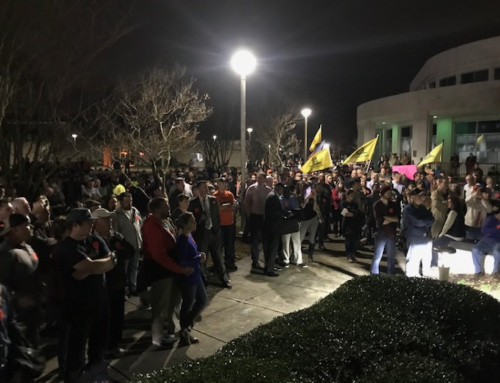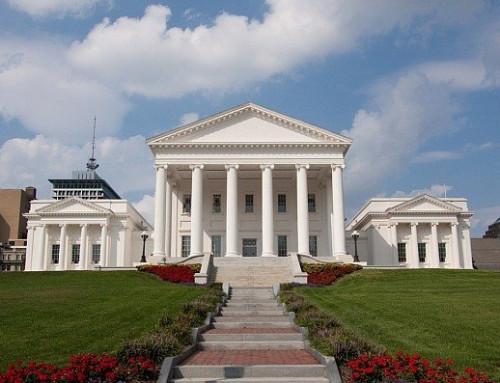Last week, the house held a hearing on HB 2470 and referred the bill out to another
committee, knowing that such an action would effectively table the bill for consideration
this year. The bill prevents the regulation of carbon dioxide emissions in the
Commonwealth of Virginia by any agency (federal or state). Virginia Scientists and
Engineers for Energy and Environment (VA-SEEE) enthusiastically endorses this bill
for the following reasons; 1.) There is no scientific basis to regulate CO2, and 2.) The
economic consequences to the state for regulating CO2 emissions are dire.
There is no scientific basis to regulate CO2
The federal government has been trying to regulate the burning of fossil fuels, and
presumably, the generation of energy, for years. The first attempt was to tax carbon
emissions to drive up the price of burning fossil fuels. These fuels include coal and
natural gas for electricity production and oil for the production of fuels to power
automobiles, trucks, and aircraft. This was the cap and trade legislation, which in
addition to driving up the price of fossil fuels, made billions for Wall Street traders,
carbon trading exchanges, and ex-politicians. When the legislation was defeated, the
administration implemented plan-B. In this approach, the administration would unleash
the US Environmental Protection Agency (EPA) to regulate carbon dioxide emissions by
a distortion of the Clean Air Act of 1971.
The EPA prepared the groundwork for this unlawful activity by declaring that CO2 was
a danger to humans and the environment. This was known as the Endangerment Finding
and was justified by the EPA’s slight of hand arguments using the flawed scientific
findings of the UN’s Intergovernmental Panel on Climate Change (IPCC).
The IPCC’s mission was not to determine the cause of global warming, but rather to
attribute the warming to human-released greenhouse gases, specifically carbon dioxide.
This mission statement clearly foretells the outcome of the IPCC and reflects their
scientific bias and real agenda, which was to blame man-made CO2 emissions for the
warming caused by a natural climate cycle. The ultimate goal of the UN, the IPCC, the
current US administration, and the EPA is to ban burning of fossil fuels. The theory of
man-made greenhouse gas global warming is the vehicle to get there. The conclusions
of the IPCC have been contradicted by the Non-Governmental International Panel on
Climate Change (NIPCC), which found no evidence that man-made CO2 causes global
warming. In their report “Climate Change Reconsidered,” the NIPCC concluded that
the cause of recent increases in temperature was due to natural cycles that have occurred
many times in the past and were independent of man-made CO2 emissions.
So, not only did the EPA fail to produce their own independent and original research
and analysis on the cause of climate change (as mandated by the clean air act) but they
used the results, analysis, and conclusions of a flawed study (the IPCC’s 4th assessment
report), which has been scientifically and repeatedly discredited. Therefore, the EPA’s
endangerment finding and contention that man-made carbon dioxide is a pollutant is
scientifically flawed and likely illegal. This completely undercuts any basis for regulating
CO2 emissions by stationary sources of production in Virginia and is the root basis for
HB 2470.
The economic consequences to the state for regulating CO2 emissions are dire.
Regulation and reductions in CO2 emissions has consequences. CO2 emissions derive
from the combustion of fossil fuels that are used to produce energy in the state. This
energy runs our homes, businesses, and factories, all of which power our economy and
provide our current quality of life in Virginia.
In their fervor to ban fossil fuel use, the administration (state and federal levels) has
mandated the use of renewable fuels that either do not emit CO2 (wind and solar) or
emit short term CO2 that can be recaptured by the carbon cycle (biofuels). This approach
will devastate the Virginia economy because we lose the cheap fossil fuels that power
our economy now and because the substitute power sources (green renewables) are not
marketable.
Renewable sources have been around for decades but have failed to make it in the free
market. Given a free choice, the market will use fossil fuels because extracting power
from the alternative sources is extremely expensive and unreliable. Additionally, the
amount of power required for our state could not be produced by saturating the state
with wind turbines and solar arrays. The physics is simply not there. It is interesting
that nuclear power, which is both economical and CO2 free, is not being considered as
a serious alternative energy source. This fact demonstrates the hypocrisy of the green
energy proponents.
We have to look no further than Europe to see a natural “laboratory” of the effects of
green sustainable energy on an economy. Denmark and Spain are both leaders in wind
power and also lead the EU in unemployment and low economic growth. The green jobs
argument is also overturned by the Spain experience, where they lose 9 conventional jobs
for every 4 green jobs that are produced.
Produced green jobs means that the money to fund these positions comes from
government sources in the form of subsidies and tax incentives to green energy
companies and not from the private sector, where real economic growth occurs. In fact,
green alternative CO2-free energy can only occur with massive governmental subsidies
because these forms of energy cannot compete on the free market with fossil fuel sources
of power. These subsidies come from taxpayer money, which strangles economic activity
by tying up private capitol for technologies that don’t work.
In conclusion, HB 2470 should become law in Virginia to protect our energy production,
or economy, and our standard of living. The regulation of man made emissions of CO2 is
both pointless and economically destructive. The long term solutions to Virginia’s energy
demands lies in the rational development of nuclear power and the use of our own vast
supplies of fossil fuels in the Commonwealth.
Martin Mangino received his Ph.D. from Michigan State University in physiological
chemistry in 1985. He currently serves as a professor and scientist in the departments of
surgery and physiology and biophysics at Virginia Commonwealth University’s Medical
College of Virginia. He was appointed president of the Central Virginia Chapter of
Virginia Scientists and Engineers for Energy and Environment in July 2009. SEEE-VA
is a not-for-profit organization of Virginia’s professional scientists and engineers that
promotes education and analysis on environment, climate, and energy issues to Virginia’s
citizens and policymakers. Contact Mangino at mjmangino@vcu.edu.



